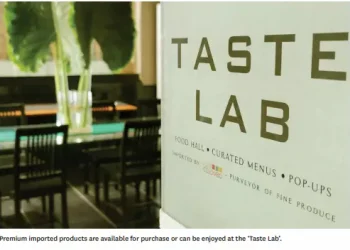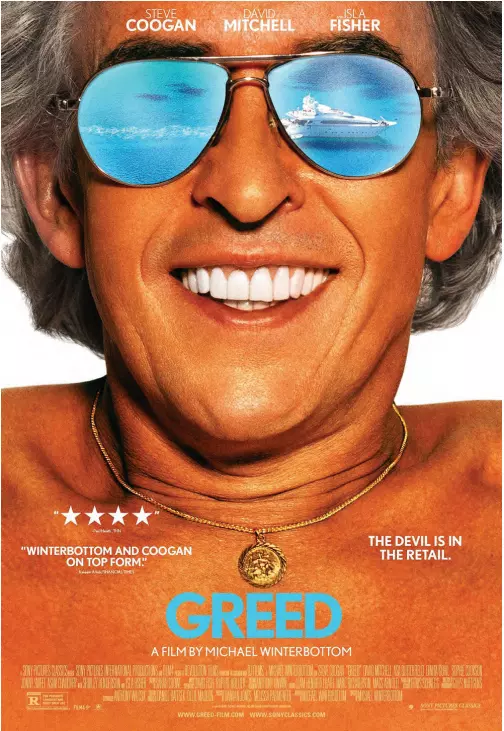
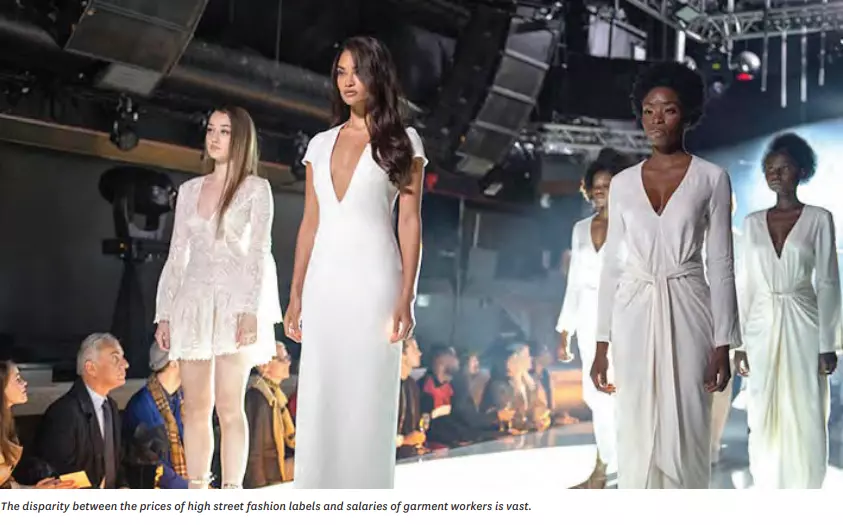
“Sir Richard McCreadie ventures towards the gladiator style arena after the initial birthday festivities, in which the lion drugged by McCreadie’s son, is feeling restless. Amanda, McCreadie’s Sri Lankan origin staff member, seeing her boss releases the gates of the lion cage, remembering the multitude of women like her mother who suffered in the apparel sector in Sri Lanka due to the ruthless manner in which McCreadie did business.”
The movie, Greed that was released in 2020 is a satire written and directed by Michael Winterbottom with Steve Coogan playing the lead of apparel billionaire Sir Richard McCreadie. The role is seemingly based on the high-street fashion mogul Arcadia Group Chairman and Topshop and Burton Founder, Philip Green. Sri Lanka is featured as one of the destinations that manufacture garments for Sir Richard McCreadie’s empire.
The movie tightens its links with Sri Lanka, by having one of McCreadie’s staff members Amanda, played by Dinita Gohil, to be of Sri Lankan origin and having family members who have worked and suffered in the apparel industry in Sri Lanka “from which McCreadie has wrung his billions” (Katie Walsh, Tribune News Service in the Columbus Dispatch, March 6, 2020). Amanda “represents the real toll billionaires such as her boss cavalierly exact on the lowliest rung of society and its unsung web of consequences,” explains Gary Goldstein in the Los Angeles Times, February 27, 2020.
Greed criticizes the inequality in the apparel industry and showcases this by drawing on the disparities between the two worlds. In the factual information that was provided at the end of the film, they state that Sri Lanka is among the best in the developing world with good labor and working conditions. Thus, the movie is not about finding fault on Sri Lanka but more on showcasing the inequalities between the high fashion brands and their manufacturers.
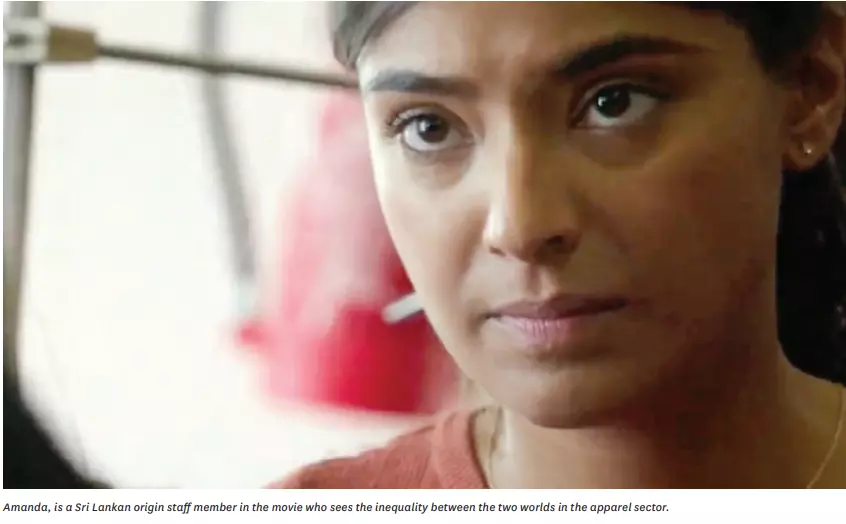
As described by Glenn Kenny, New York Times, February 27, 2020, “the movie is less an allusion than a direct, blatant and bitter statement of theme.” The movie revolves around Richard McCreadie’s 60th birthday bash, which he is organizing on the Greek Island of Mykonos. He essentially micromanages every element in which the movie draws out to depict his character. The director showcases the rise of McCreadie by “constructing a time-traveling, format-shifting biopic with a from-humble-beginnings hook” as explained by Glenn Kenny, The New York Times, February 27, 2020. Richard McCreadie is a British billionaire who has made it to the top by being a bully, manipulative and unethical.
The movie constantly moves back and forth from the present to the past and in one such scene a young McCreadie discusses with his friends in a casino the daily wages in the apparel sector in Sri Lanka in the 1980s. He asks, “What is the average wage in Sri Lanka?” and replies himself to his friends that it is 50p a day. Further stating that he could manufacture large number of garments with such rates. Footage filmed in Sri Lanka show the manner in which the young McCreadie bargains and bullies, at times speaking in filth to get the lowest manufacturing price so that he could have higher margins when the garments are sold in high street fashion stores.
McCreadie similar to Philip Green organizes a party that is extravagant with celebrity invitees and various thematic events running for days, while “presumably that same week, about 10,000 miles away in Sri Lanka, Topshop’s sweatshop employees were stitching garments for reportedly 64 cents an hour”, explains Julie Miller in Vanity Fair, March 5, 2020. As Gary Goldstein in the Los Angeles Times, February 27, 2020 describes “McCreadie throws himself on the Greek island of Mykonos in a desperate bid to repair his muddied public image, coalesces into a thoughtful, pointed, at times deceptively profound look at how the rich get richer and, well, you know what happens to the poor.”
In BBC, February 21, 2020, Steve Coogan states that the movie Greed is not a direct attack on Sir Phillip though the billionaire “based in Monaco has been accused of tax avoidance and was questioned by MPs on his role on the demise of the chain BHS.
According to Euan Kerr, MPR News, March 6, 2020, Michael Winterbottom had decided on doing the movie when a journalist mentioned that he had been covering “a British government inquiry into the activities of Sir Philip Green, a British billionaire who owned a number of British clothes shop chains and faced allegations of following policies that made him huge profits on the backs of his employees.”
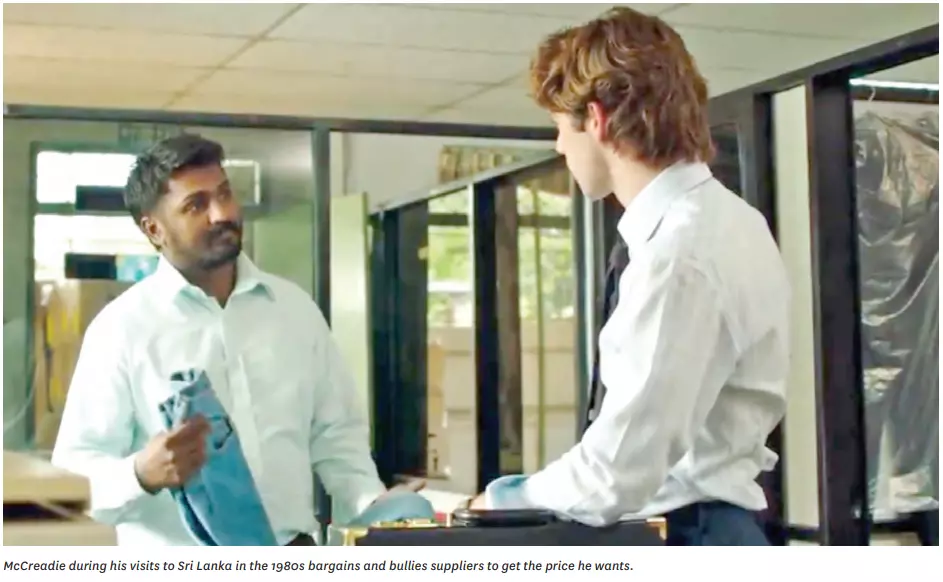
A review in the Guardian on Greed, September 11, 2019, describes how McCreadie develops high street fashion names such as Xcellent that he has set up and put out of business over the years, as it happens in the real world as well. “Scenes in Sri Lanka show how he has brutally exploited developing-world labour – and always with screeching, bullying self-pity, as though they are exploiting him,” states the Guardian (September 11, 2019). These are some of the realities that occur during the investment process, between the investor and the recipient country or industry.
As the BBC, February 21, 2020 explains, Greed targets bosses of multinational companies who are making massive profits “while factories they use in developing nations like Sri Lanka pay their workers about £3 a day.” Yet, the movie does not imply that the entire apparel industry has this attitude but certain billionaires who have made exorbitant wealth in this manner.
Michael Winterbottom speaking to Euan Kerr, MPR News, March 6, 2020, said that “you have really grotesque inequalities of wealth” between billionaire brand owners and the workers, most of whom are women. “About 80 percent of the workers are women who work in countries like Sri Lanka, where we filmed, who get paid extremely low wages to make clothes for those brands.”
The movie shows that to meet tight deadlines and also the demands in terms of low cost by the buyers’ entail in difficult working conditions and a sub-standard living environment. The movie narrates the story from the 1980s to the present day and shows that though the lives of the owners of the high fashion street labels have improved considerably making them billionaires, the lives of the workers/employees have not changed. In Vanity Fair, March 5, 2020, Michael Winterbottom further explains, “We try to harness together a billionaire on his yacht in Monaco not paying taxes, and women workers working very hard days for four quid a day.” “They seem like two totally separate worlds, but they are genuinely connected.” “It’s tens of millions of women on one side, and it’s one or two billionaires on the other side.”
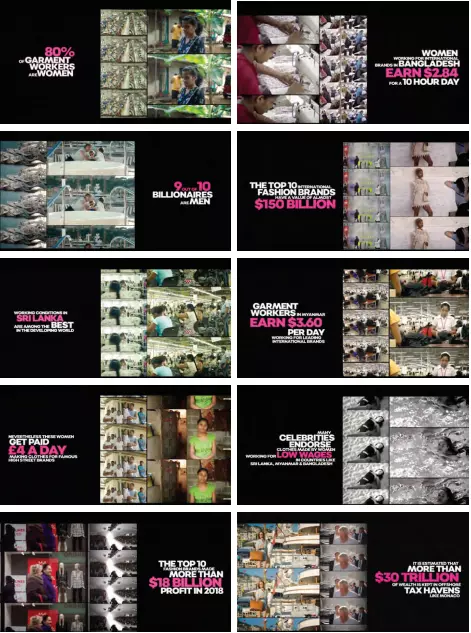
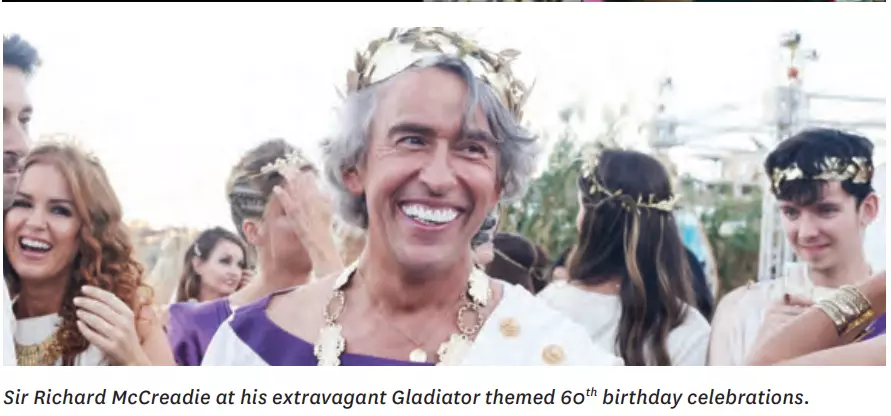
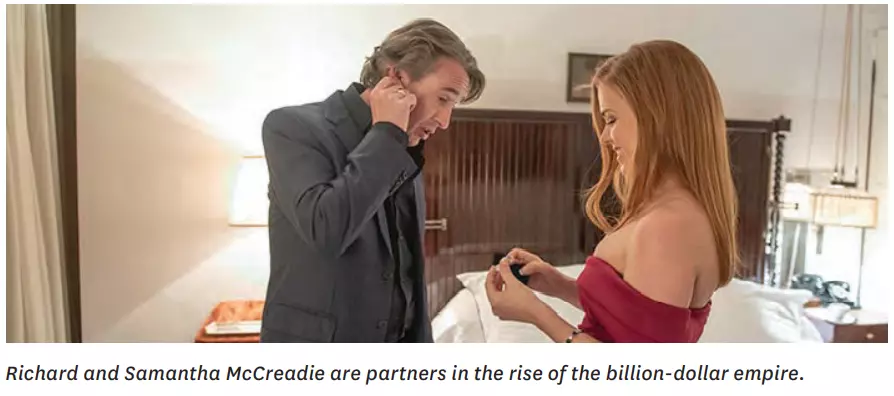
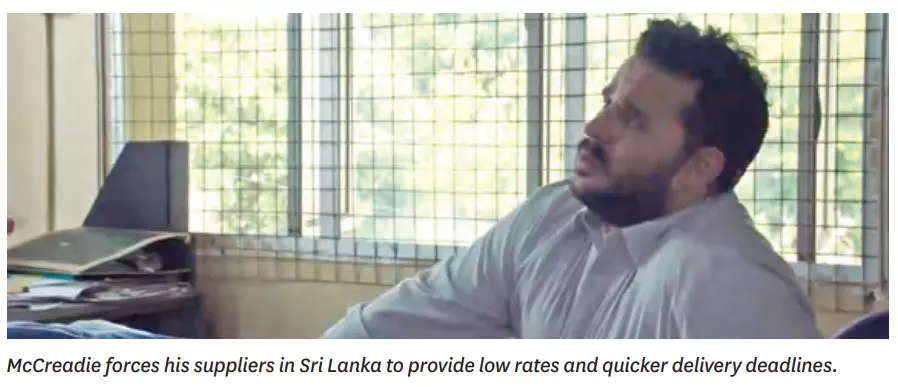
References:
References:
https://www.bbc.com/news/business-51584252
https://www.mprnews.org/story/2020/03/06/greed-movie-entertains-while-criticizing-clothing-industry
https://www.theguardian.com/film/2019/sep/11/greed-review-steve-coogan-michael-winterbottom
https://www.vanityfair.com/hollywood/2020/03/greed-real-life-billionaire-philip-green
Nathalie Atkinson, The Globe and Mail, March 4, 2020 describes “while scenes of expository parliamentary hearings explain asset stripping and how the industry-standard piecework sewing undermines fair wages and safe working conditions for its largely female workforce, the movie makes side trips to a preposterous yacht that has a basketball court, as well as to actual garment factories and a worker village in Sri Lanka.”
Greed is told through several narrative layers as explained by Katie Walsh, Tribune News Service in the Columbus Dispatch, March 6, 2020. She further elaborates “The main plot follows McCreadie’s hapless biographer, Nick (David Mitchell), as he conducts a sort of observation of his subject on a Greek island during preparations for his lavish 60th birthday celebration. Interviews with McCreadie’s nearest and dearest offer the opportunity for flashbacks to his youth, although the myth is frequently pierced by sobering moments from a parliamentary hearing regarding his shady business practices.”
As explained by Euan Kerr, MPR News, March 6, 2020, Nick, “the writer’s appalled at what he learns when he visits the Sri Lankan factories. But he guiltily enjoys the family’s sun-splashed excesses as they prepare for the “Gladiator”-themed party on a Greek island.”
Nathalie Atkinson, The Globe and Mail, March 4, 2020 describes “In flashbacks of the tycoon’s transgressions during his rise, Winterbottom points out how he had McCreadie’s career start around the beginnings of Thatcherism and Reaganism – “this idea of this obsession with the market,” he says. “That the market is God, the market is right, don’t regulate the market. And I think since the financial crisis, there is a shift in that people are fed up, ordinary people do feel like the market doesn’t always work for them and want a change.”
“Greed also features cogent explanations of debt restructuring: the way banks throw dumpsters full of cash to rich ‘entrepreneurs’ while never offering so much as a rope ladder of credit to the poor who work for these characters. The final sequence detailing income inequality and sweatshop exploitation in the fashion industry is a powerful kick in the teeth,” explains Glenn Kenny, The New York Times, February 27, 2020.



